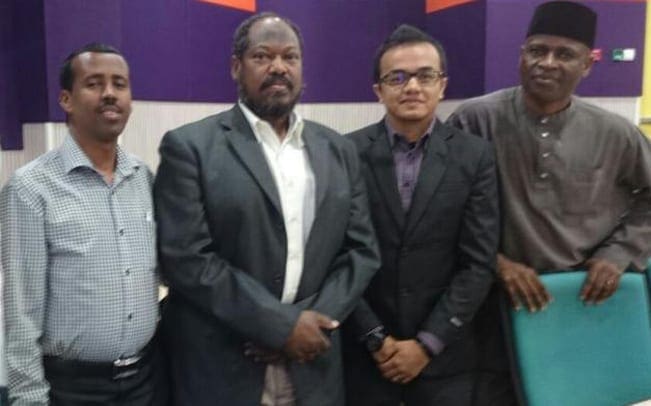Researcher: Ayub Ilfandy Imran
Supervisors:
1. Prof. Dr. Saodah Wok
2. Prof. Dr. Junaidah Hashim
3. Dr. Aini Abd. Manaf
Examiners:
1. Prof. Dr. Faridah Ibrahim
2. Prof. Dr. Md Salleh Hj Hassan
3. Assoc. Prof. Dr. Che Mahzan Ahmad
Innovation has been identified as a crucial drive that determines the survival, growth and sustainability of many modern organisations. In today’s competitive business environment, innovation can be critical in driving both individual and organisational successes. More importantly, individuals within the organisations are the key players in the implementation of innovativeness at work. Hence, this study investigates the mediating effect of innovativeness on selected communication factors towards career advancement. Specifically, this study takes a close look at how communication efficacy, communication climate, mentoring, and networking influence academicians’ innovative working behavior. These communication factors are believed to provide opportunities for the innovation and implementation of novel ideas that would help employees in achieving their career goals, and thus become a platform for their career advancement in organisations. To guide this human behavioral research, this study applied Social Cognitive Theory as its theoretical background.
The study adopted a quantitative survey research design. A self-administered questionnaire was distributed to 364 lecturers of three major Islamic higher learning institutions in Malaysia, namely, International Islamic University Malaysia (IIUM), Islamic Science University Malaysia (USIM), and Selangor International Islamic University College (KUIS). The findings indicated that the academicians have high communication efficacy, conducive communication climate, effective mentoring, supportive networking, rapid career advancement, and excellent individual innovativeness. This study also found positive relationships between the communication factors and both career advancement and individual innovativeness. Specifically, networking was found to be the best predictor of both career advancement and individual innovativeness. The results also indicated that individual innovativeness is strongly correlated with career advancement. More importantly, the study found that individual innovativeness is able to partially mediate each communication factor towards career advancement.
To validate the model proposed by this study, the Structural Equation Model (SEM) was applied. The results, however, have led this study to exclude communication climate and mentoring from the model. This means that significant relationships were found between individual innovativeness with communication efficacy and networking, and between individual innovativeness and career advancement. More importantly, this study managed to validate the mediating effect of individual innovativeness on both communication efficacy and networking towards career advancement. Thus, the final model includes communication efficacy and networking (as the exogenous variables), career advancement (as the endogenous variable) and individual innovativeness (as the mediating variable).

